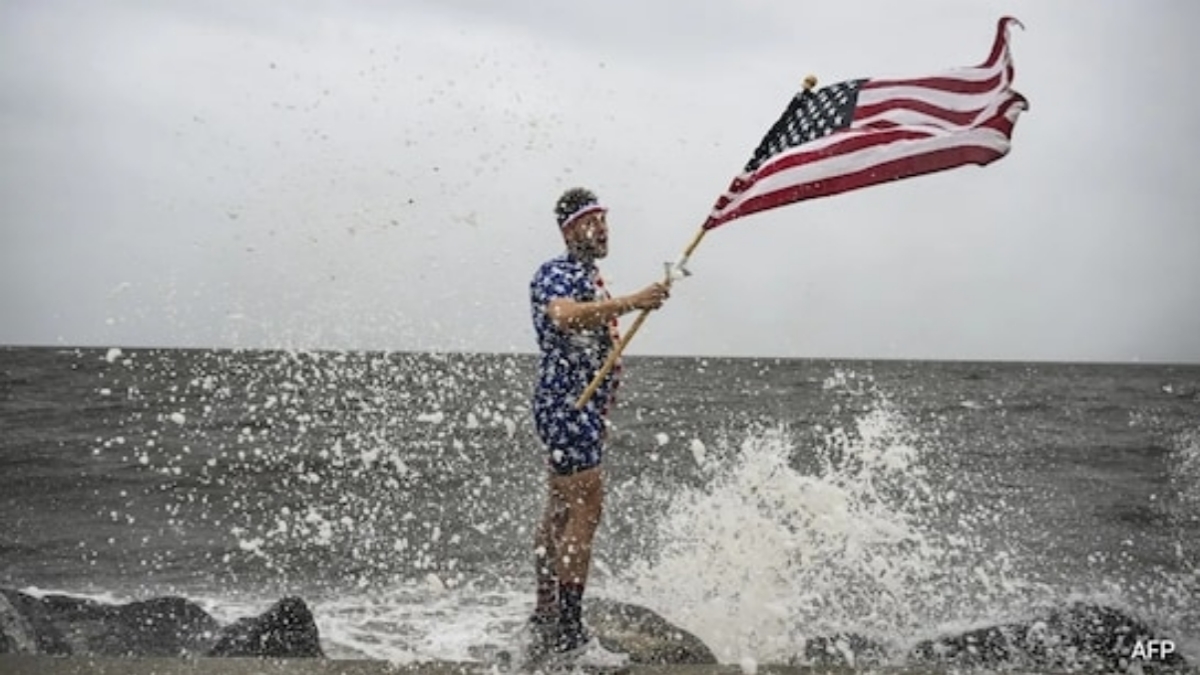In the aftermath of Hurricane Helene, one of the deadliest storms to hit the U.S. Southeast this century, the disaster recovery efforts are being undermined not just by the physical destruction but also by a torrent of false rumors and conspiracy theories spreading online. While the storm left a trail of devastation across several states, the spread of disinformation is making recovery efforts even more difficult, and this phenomenon has become a central issue in the current political climate.
The Surge of Conspiracy Theories
One of the most bizarre claims making rounds on social media is that Hurricane Helene was artificially engineered to facilitate corporate interests, specifically to allow companies to mine regional lithium deposits. This falsehood, while unfounded, has gained traction among some groups and has complicated communication between the public and disaster relief agencies. Another widely circulated rumor accuses the Biden administration of using federal disaster funds to support migrants in the country illegally, diverting attention from American citizens affected by the storm.
As the U.S. prepares for the upcoming presidential election between incumbent President Joe Biden and Republican challenger Donald Trump, the conspiracy theories surrounding the hurricane have gained momentum. In a recent rally, Trump claimed that emergency funds intended for Hurricane Helene relief were misused by the Biden administration. Although the White House and FEMA (Federal Emergency Management Agency) have categorically denied these claims, the rumors have persisted, fueled by social media and political actors.

FEMA’s Struggle Against Disinformation
FEMA, which is at the forefront of disaster relief, has been forced to set up a specific rumor response page on its website to address the multitude of falsehoods circulating online. The agency’s role is to provide immediate response and recovery efforts to communities affected by natural disasters like Hurricane Helene. However, with the rising tide of conspiracy theories, FEMA’s job has become increasingly challenging.
For instance, Republican Congress member Marjorie Taylor Greene, known for her controversial statements, contributed to the disinformation by claiming on social media platform X that the government has the ability to control the weather. “Yes, they can control the weather,” she posted, further stoking the flames of conspiracy theorists. This assertion, while completely unfounded, distracts from the very real work that needs to be done to recover from the hurricane’s destruction.
Kevin Corbin, a Republican state senator from North Carolina, expressed his frustration with the misinformation circulating about the disaster response. He noted that many of his constituents were calling his office, demanding answers to questions based on false premises they had encountered online. “98% chance it’s not true,” Corbin said of the rumors, adding that the disinformation was only serving to confuse and hinder relief efforts.
Political Influence and Divisive Narratives
The false rumors surrounding Hurricane Helene have largely taken on a political dimension. As the presidential election draws near, some politicians and media outlets appear to be using the tragedy to further their own agendas. According to a memo released by the White House, conservative media outlets and some Republican leaders are deliberately promoting disinformation in an attempt to divide the nation. The memo warned that such disinformation could discourage people from seeking the critical assistance they need.
The memo specifically addressed Trump’s claim that federal emergency funds were being diverted to support migrants rather than being used for relief efforts. “This is FALSE,” the memo stated, adding that none of the disaster relief funding had been allocated for housing or services for undocumented migrants.
Despite these official rebuttals, Trump’s accusations have continued to gain traction among his base, who see them as part of a broader narrative of government mismanagement. His campaign doubled down on the claims in response to inquiries, maintaining that FEMA funds were being misused.
Social Media Amplification
The power of social media to spread false information has been evident throughout the recovery from Hurricane Helene. Platforms like X and TikTok have seen thousands of posts amplifying conspiracy theories about the storm and the government’s response to it. Even individuals working within disaster agencies like FEMA have taken to social media to combat the falsehoods. For example, Katie Keaotamai, a FEMA employee, used TikTok to explain disaster response procedures in an effort to counter the disinformation. Although her posts were made in a personal capacity, they garnered thousands of views and provided some clarity amidst the confusion.
Kate Starbird, co-founder of the Center for an Informed Public at the University of Washington, explained that disaster events are often politicized, especially in the current environment of heightened political polarization. She added that social media, with its algorithms designed to promote sensational content, has become a breeding ground for conspiracy theories and misinformation. This, in turn, complicates the disaster response process and undermines public trust in institutions like FEMA.
The Impact on Recovery Efforts
The spread of conspiracy theories is not just a political issue; it has real-world consequences for the recovery efforts following Hurricane Helene. Disinformation can lead to confusion and mistrust among the public, causing delays in the distribution of aid and hampering communication between affected communities and relief agencies. As FEMA and other disaster response organizations work tirelessly to help those impacted by the storm, the proliferation of false information only makes their job more difficult.
In the wake of such a devastating natural disaster, it is crucial that accurate information be shared and that disinformation is swiftly addressed. As the U.S. braces for more extreme weather events due to climate change, the importance of clear communication and cooperation between government agencies and the public cannot be overstated.
In conclusion, while the physical damage caused by Hurricane Helene is immense, the rise of conspiracy theories and disinformation in its aftermath poses an equally significant threat to the recovery process. Politicians, media outlets, and the public must work together to ensure that false information does not impede disaster relief efforts or sow further division during an already challenging time.



















